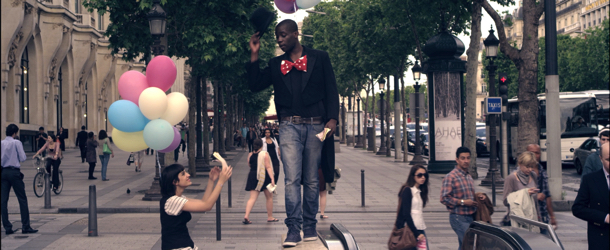
Dir.: Cem Terbiyelli
Ezel Akay, Serpil Güter, Önder Ince, Haluk Ünal
Documentary; Turkey 2014, 80 min.
Ever since the beginning of the 1990s, pogrom-like attacks of Turkish armed forces and police, have decimated Kurdish towns and villages. This documentary is told from the viewpoint of the young, most of them are children under ten, some are teenagers. It is terribly sad to listen to these children and hear the voices of bitter, disillusioned adults.
Suzan Celebi from Van has witnessed one of these “attacks on terrorists”, as the Turkish government terms these ethnic cleansings. The village was forced to gather in the square and the majority of them were shot by the officers. Some non-coms, who did not want to participate in the murders, were also shot. Celebi’s aunt got away with the children, but had to abandon them as she was unable to carry them over the steep mountains. Ayhan Kizildogan, who was raised in the border town of Yüksekova simply states “No child growing up in the 90s could talk about a childhood worthy the name”.
The houses are still full of bullet holes, but the emotional scars are so much worse. Vehbi Yildirim from Diarbakir tells the parable of the red and black ants, comparing the Turkish government with the red killer ants, and the Kurdish people with the black worker ants. He has seen tanks shooting at unarmed civilians. When his family house was burned down, one of the Turkish soldiers tied him to the door – luckily for him, a Kurdish soldier freed him before the house went up in flames. Clips from newsreels accompany the stories of Cihut Ürgen from Sirmak: tanks shooting at unarmed villagers, soldiers killing and looting. Emirhan Uysal from Sirnak tells about soldiers, gathering the whole population of the small town in the square, where they are forced to undress and their animals slaughtered, before their clothes are set on fire. Mehmet Dag from Kiziltepe has found a way to deal with his traumata: he and his friends are playing in group, voicing their protest instead of joining the guerillas in the mountains. Meanwhile young Imren Demirbas from Diarbakir, speaks for many of the children when he states that “crying is submission”. Nesmin Öner from the village Diarbakir, went out with his uncle to look for an animal which had disappeared. He found a piece of metal, which he threw against a rock. The mine exploded in his face, scarring him for life. Having lost half of his arm too, he took up middle distance running, competing in the Para-Olympics in London 2012. His wish for the future, is to train another disabled athlete, a very mature outlook for a teenager who had suffered such horrible injuries. Finally Mustafa Dara Özevin from Batman, who wants to be an aerospace technician when he grows up, shows an amazing maturity in stating his interest in ecology and animal welfare. He ends with a devastating comment: “Animals kill for food, humans for land and money.”
LITTLE BLACK FISHES is a devastating film, the horrors of the non-declared and unofficial war by Turkey against just another minority – following the genocide of Armenians at the beginning of the 20th century. This is bad enough for adults, but seeing the faces of children, their eyes dulled with permanent pain, is sometimes too much to watch. The images of the wild and untamed landscape together with the mournful Kurdish music make this an unforgettable experience, ending at a disbanded fair ground – an eerie symbol of a childhood that never took place AS
LONDON TURKISH FILM FESTIVAL 7 -17 MAY 2015